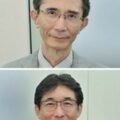Discussion of the Governance Problems Surrounding STAP Cell Research Papers

SAKURA Osamu, Ph.D., Professor at the Interfaculty Initiative in Information Studies, University of Tokyo
In January 2014, a research team led by Obokata Haruko, a research unit leader of the Laboratory for Cellular Reprogramming at RIKEN Center for Development Biology (or CDB) in Kobe, Japan, published two research papers in Nature to the effect that a new technique had been discovered to produce pluriopotent cells by applying an external stress such as immersing the somatic cells of mice in a mild acidic solution. The newly discovered cells are referred to as Stimulus-Triggered Acquisition of Pluripotency (STAP) cells.
This groundbreaking technique captured a lot of attention in both the media and the public at large as well as in academic circles because it allows cellular reprogramming only by using an external stressor without introducing external genetic material. In Japan’s scientific community the ratio of women to men is low, and against this backdrop the government and academia have been jointly encouraging more young females to actively participate in scientific fields. This fact could be an element in helping the story to garner a great deal of attention particularly because Dr. Obokata, the research unit leader, happens to be a young woman.
Heralded as another significant scientific achievement following the discovery of iPS cells, Japan’s academia in the field of developmental biology and regenerative medicine were ecstatic about the STAP cell discovery. However, it was not long before the two research articles published in Nature were discovered to be inaccurate. Inappropriate labeling of diagrams for the research paper and copying and pasting from other materials were found, and as the subsequent investigations progressed, doubts have been growing about the discredited research itself.
The following article covers a roundtable discussion held on April 8, 2014 in which a response to the STAP cell scandal was examined. Participants in this discussion were: Dr. Yashiro Yoshimi, a stem cell research expert who is also well-versed in communication activities within societies, Dr. Katase Kumiko, a science journalist with a doctoral degree in moleculer cell biology, and myself, (Dr. Sakura) a specialist in science, technology and society (STS). To fully understand the STAP cell scandal it requires expert perspectives in developmental biology and stem cell research, hands-on expertise in the operations of research laboratories such as RIKEN CDB, government administration on science and technology, and scientific journalism. The aforementioned three participants exchanged expert views as the discussion involved topics in too many fields for a single person to cover.
After the roundtable discussion was held RIKEN’s internal affairs investigative committee and external reform committee released their reports and a problem with governance at RIKEN-CDB was pointed out. In the meantime, the two articles published in Nature have been withdrawn. The peer review system of Nature has also been questioned, and Nature has made a statement that it will review its system. To date several co-authors of research papers have held press conferences to provide updates and present new related evidence. One of them, Dr. Sasai, was exhausted to kill himself in August.
Despite the new information made public afterwards by these endeavors, the contents of the article should remain unchanged. The same kind of scandal will repeat itself unless the structural problems discussed subsequently such as the double-standards applied to research papers and patents, the closed nature of life science research, too much competition in science research and defective scientific graduate school programs providing inadequate education are resolved.
Translated from an original article in Japanese written for Discuss Japan. [November 2014]




